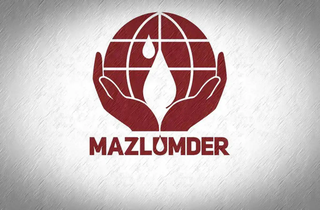The February 28 coup had significant and long-lasting effects on Turkish society and politics, leading to the detention, arrest, and legal action against thousands, including politicians, activists, and military personnel.
In their statement, MAZLUMDER criticized the repeated misuse of general amnesty in Türkiye, noting that overcrowded prisons often lead to amnesty for criminal convicts. The association argued that the authority to grant amnesty should rest with the victims' families rather than the state, which paradoxically imposes harsh penalties for crimes against itself while pardoning other criminal offenses.
"While the perpetrators of the coup are collectively pardoned, the most severe victims—those imprisoned on dubious legal grounds—remain behind bars," the statement said. MAZLUMDER emphasized that in normal circumstances, convicts imprisoned for crimes against the state are ineligible for general amnesty. However, the February 28 coup perpetrators were pardoned by President Recep Tayyip Erdoğan due to their old age, while their victims continue to age in prison.
The statement also highlighted the plight of aging and severely ill prisoners in Türkiye, pointing out that many are held based on abstract accusations of membership in illegal organizations without concrete evidence. The process of obtaining medical reports for these prisoners from the Council of Forensic Medicine (ATK) is often prolonged or yields negative outcomes. In contrast, the medical reports justifying the coup plotters' pardons were questioned for their reliability.
MAZLUMDER called for an urgent restructuring of the ATK to ensure equal treatment for all prisoners, regardless of their crimes. They stressed that the government's current practices turn convictions into severe injustices for prisoners and their families. "It is a dire situation that the government, which has built its political identity on combating coups, forgives perpetrators instead of victims after so many years in power," the statement concluded.
Following a Presidential Decree published in the Official Gazette, amnesty was granted to the defendants of the February 28 case. The released individuals include Fevzi Türkeri, Yıldırım Türker, Cevat Temel Özkaynak, Erol Özkasnak, Çevik Bir, Hacı Sülük, Aliefter Aslan, Avni Yılmaz, Sevda Yüksel, and Çetin Doğan.
This controversial move has sparked a heated debate about justice, accountability, and the proper use of amnesty in Türkiye. (ILKHA)



 Güncel
Güncel
 Dünya
Dünya
 Güncel
Güncel
 Güncel
Güncel
 Güncel
Güncel
 Dünya
Dünya
 Dünya
Dünya
 Dünya
Dünya
 Güncel
Güncel
 Güncel
Güncel





